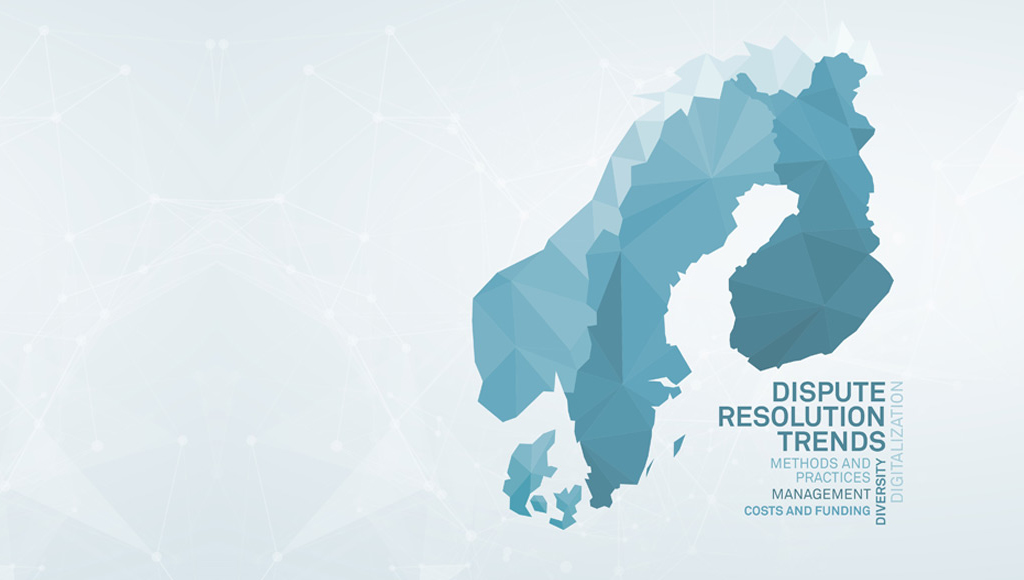
Insights | February 17, 2021
The launch of the Roschier Disputes Index 2021 – key takeaways
The sixth edition of the Roschier Disputes Index was launched during a digital event on Tuesday 9 February. The Index focuses on prevailing practices and trends in dispute resolution in the Nordics. In addition to this, this year's edition explores digitalization, diversity and the impact of the pandemic.
Aapo Saarikivi, Partner at Roschier, started the event by welcoming everyone and presenting the topics in the Index. The findings from the survey were then presented by Eva Storskrubb, Counsel, Dispute Resolution at Roschier. The presentation was followed by reflections on the findings, shared by Ola Ø. Nisja, Partner at Wikborg Rein, and Steffen Pihlblad, Secretary General of the Danish Institute of Arbitration.
Subsequently, a panel, comprising Chiann Bao (Arbitrator and member of Arbitration Chambers), Kristin Campbell-Wilson (SCC Deputy Secretary General), and Clemens Heusch (VP Head of Global Litigation and Disputes at Nokia), which was moderated by Shirin Saif (Partner at Roschier), discussed topics such as the pros and cons of arbitration, the impact of the COVID-19 pandemic on disputes, the potential for ADR and the importance of diversity.
Key takeaways from the launch of the index
- Confidentiality and efficiency are still the most important factors when choosing arbitration as a dispute resolution method: Two common topics in the arbitration community are how costly international arbitration has become and the lack of transparency in arbitration proceedings. Despite this, according to the Index, the non-public nature and efficiency of the proceedings continue to be the two most decisive factors for choosing arbitration.
- Participation in mediation and other ADR methods continues to be fairly low: Except for Norway, there has not been any significant development in the use of ADR in the Nordic countries since the 2018 Index. For unknown reasons, a large number of respondents noted that ADR has not been considered relevant or suitable for their cases, or that negotiations between disputing parties have been considered sufficient. This is despite the fact that the Index shows that 63% of the cases that went to ADR resulted in a settlement. Evidently, there is still a lot to be done to increase interest in ADR in the Nordics.
- The pandemic has resulted in an increased number of disputes: It is still too early to appreciate the full impact of the COVID-19 pandemic. Notwithstanding this, 27% of the respondents answered that they had witnessed changes due to the pandemic. The increase in the SCC’s case load also testifies to the fact that the pandemic has had some kind of effect. Last time the SCC experienced such a steep peak was in 2009, i.e. the year following the financial crisis.
- Diversity also has an impact on dispute resolution: Diversity can mean different things to different people and organizations. When discussing diversity, gender is often top of mind, but the concept may also include age, ethnicity, faith, sexual orientation and social background. Although the respondents were free to answer the questions based on their personal understanding or based on the understanding of their company, the Index shows that diversity is on the agenda for many companies, at least when it comes to choosing a law firm to represent them in a dispute.